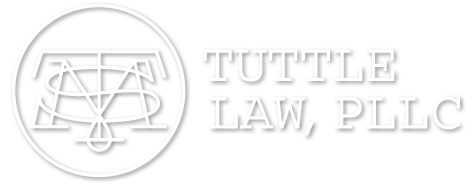It surprises many employers without unionized workforces to learn that they are subject to the National Labor Relations Act. Like their unionized brethren, they risk violating the NLRA when dealing with employees who are engaged in “concerted activity” for the “purpose of mutual aid or protection.” It will surprise them even more to learn that the National Labor Relations Board has recently stretched to their limits the concepts of “concerted activity” and “mutual aid or protection,” concluding that an employee seeking witnesses while advancing her individual sexual harassment claim is acting in concert with others for their mutual aid and protection. This stretch expands the activities protected by the NLRA and consequently expands the NLRB’s jurisdiction over a wider range of potential claims.
In Fresh & Easy Neighborhood Market, Inc., a female employee’s message on a whiteboard to her supervisor was altered to include an inappropriate word and a figure urinating on her name. Because cameras were not permitted in the workplace, the employee copied the altered message and figure on a piece of paper and asked her co-workers to sign the paper as witnesses, acknowledging that the piece of paper accurately portrayed the whiteboard message as altered and defaced. The co-workers did so, but one later complained that she felt coerced and the second testified that she signed only to prevent a scene in front of customers. No one signed the paper as part of a joint effort, whether to complain about harassment or otherwise.
The employer conducted an investigation into the harassment claim, identified the perpetrator and disciplined him. The employer also questioned the employee who brought the complaint, asking her about the whiteboard writing and her request to co-workers to sign the paper. The employer instructed her not to obtain any additional statements while it investigated her complaint
To employers not used to dealing with the National Labor Relations Act, this would seem to be the end of the story – a successful investigation and conclusion to a Title VII sexual harassment claim. However, Fresh & Easy found itself before the NLRB, answering charges that it committed an unfair labor practice – interference with an employee’s rights under the Act – by questioning the complaining employee about her asking co-workers to witness her paper and instructing her not to obtain further statements.
Although the NLRB ultimately held for the employer and concluded there was no unfair labor practice, the Board found that the complaining employee had engaged in “concerted activity.” To the NLRB, the mere solicitation of employees to sign her paper for her individual claim of harassment was “concerted” action.
The Board further concluded that the conduct was “for the purpose of mutual aid or protection,” invoking the “solidarity principle,” which rests on the notion that employees share a common cause and that “an injury to one is an injury to all.” The principle posits that employees have an interest in helping one another because the next time they could be the one needing help or support.
Much can be debated about the Board’s conclusions about protected activity in this case. For example, did the Board confuse acting “in concert” with acting “in contact” with others? Did the Board, as one of the decision’s dissenters pointed out, err in relying on the “solidarity principle”? Consider that principle presumes as true what the employee is required to prove – that the conduct was for mutual aid or protection. The employee is relieved of his burden of proof.
More troubling, though, is the startling breadth of the decision and the lack of guidance to employers having to address and investigate a wide variety of workplace issues in its wake. The Board found for Fresh & Easy on extremely narrow grounds. Other employers might not be so fortunate.
Employees have many statutorily protected rights, including those related to wage and hour, workplace safety, workers’ compensation, unemployment compensation, benefits matters, and discrimination laws. A number of federal and state agencies exist to interpret and enforce statutes and rights. Injecting NLRA protections into employers’ investigations of harassment and other legal violations will needlessly complicate those investigations. All questioning of complaining employees and witnesses must be undertaken with an eye toward the NLRA’s general prohibition against employers’ questioning employees about their protected concerted activity, including why they chose to engage in that activity. Further, policies and procedures that previously did not implicate the NLRA might now be alleged to infringe on employees’ rights to engage in activities that previously would not have been protected.
If this case stands going forward for the proposition that enlisting even the most minimal support for individual statutory claims constitutes concerted activity to seek mutual aid or protection, then the mutual aid or protection requirement of the NLRA is essentially nonexistent. Moreover, the NLRA becomes an overarching employment statute and the NLRB the overarching watchdog with jurisdiction over all manner of workplace rights and issues.
For an employee seeking NLRA protections for his individual claim and activity, he need only assert that he is acting for “me, myself and I.”
— Melanie S. Tuttle

Leave a Reply